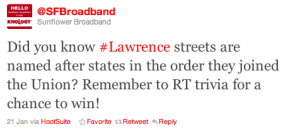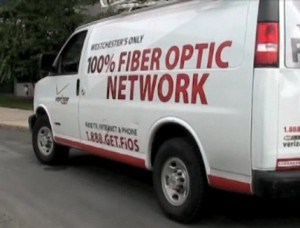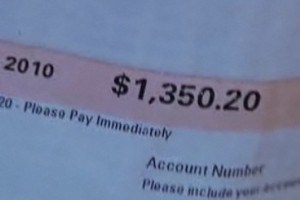Pesky facts have a way of getting in the middle of silly marketing campaigns. Knology of Kansas (actually Georgia) has run into this problem in a big way with its glitzy, carefully-crafted welcome website KnologyKnows.
Some of the company’s facts are uncoordinated.
Lawrence blogger Joe Davis sure noticed:
Knology put up a new website to help build their brand in Lawrence, Kansas. In big capital letters, they write:
Allow us to introduce ourselves. We’re Knology, the new (115-year-old) kid on the block.
Sounds eerily familiar to the beginning of “Sympathy for the Devil” by the Rolling Stones. Trust me… I have no sympathy for the Devil (in this case, a non-local company), also known as Knology. Their website is called KnologyKnows.com. But considering how many “facts” they’ve put out this past week that have been wrong, they really don’t know.
[flv width=”640″ height=”253″]http://www.phillipdampier.com/video/Sunflower Broadband is Now Knology.flv[/flv]
Knology’s opening welcome video to residents of Lawrence, Kansas has some fact-checking problems. (1 minute)
Davis caught a fact-checking lapse in the company’s introductory video, which claims the world record for handshakes was 13,372. Oops. In 2002, while campaigning for office, soon-to-be Gov. Bill Richardson set a world record for the most number of handshakes in an eight-hour period: 13,392.
The only thing Knology has been good at so far in Lawrence is shaking down their customers with Internet Overcharging schemes. The company has plenty of money to invest in promoting itself, but has so far retained Sunflower Broadband’s costly usage limits and overlimit fees.
Knology hasn’t been around for 115 years either — a company it bought out was. The Interstate and Valley Telephone Company was one of many independent phone companies created to serve areas AT&T dismissed as rural backwaters not worthy of their service. Knology itself has only been around since 1994, owned by ITC Holding Company — the people who also brought you Mindspring, a defunct Internet Service Provider sold to Earthlink one month before the dot.com crash.
Davis is also unimpressed with the company’s sell-out of its customer support staff, many of whom will lose their jobs as part of the company’s “rightsizing” initiative.
For Davis, first impressions mean a lot, and Knology is doing themselves no favors. Some of their other trivia isn’t always accurate, either:
This “fact” is told to anyone who first comes to Lawrence. However, it is wrong. Truth is, 14 states are missing from the Lawrence street grid. The first thing I did when I was told this in 2006 was to find where Connecticut street was located. The funny thing is… Of the 36 state streets in Lawrence, Georgia is not included. Knology is based out of Georgia. Whoops.
Davis says Knology has turned Sunflower’s well-regarded Twitter customer support account into an automated marketing spambot, spewing out continuous tweets telling customers to enter its giveaway and visit its newly branded website.
Stop the Cap! reader Brian, also from Lawrence, agrees with Davis.
“Knology has no concept of the truth in their marketing campaign. This is a scary test of things to come. Fortunately, we just switched to AT&T’s U-verse.”
Perhaps Knology should learn from the ghost of Mindspring, which used to have legendary customer service and a list of:

By filling out Knology's survey, you can give the company a piece of your mind over its Internet Overcharging schemes and possibly win this 32" Samsung flat panel TV.
The 14 Deadly Sins of Mindspring (a/k/a “the ways that we can be just like everybody else”)
- Give lousy service- busy signals, disconnects, downtime, and ring no answers.
- Rely on outside vendors who let us down.
- Make internal procedures easy on us, even if it means negatively affecting or inconveniencing the customer.
- Joke about how dumb the customers are.
- Finger point at how other departments are not doing their job.
- Customers can’t get immediate “live” help from sales or support.
- Poor coordination across departments.
- Show up at a demo, sales call, trade show, or meeting unprepared.
- Ignore the competition, they are far inferior to us.
- Miss deadlines that we commit to internally and externally.
- Make recruiting, hiring, and training a lower priority because we are too busy doing other tasks.
- Look for the next job assignment, instead of focusing on the current one.
- Office gossip, rumors, and politics.
- Rely on dissatisfied customers to be your service monitors.
Readers can share their views about Knology’s unjustified Internet Overcharging schemes and enter to win a 32″ Samsung flat panel TV in the process. You need not be a customer to participate. Just complete their survey, and be sure to let them know in the box labeled “other” that you will never do business with an Internet provider that doesn’t provide truly unlimited, full speed, flat rate broadband service.


 Subscribe
Subscribe










